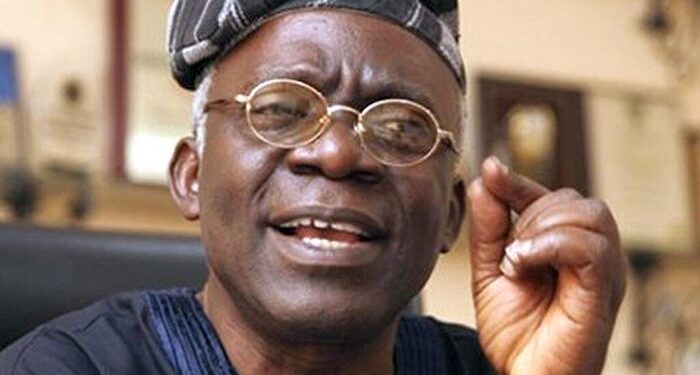Renowned human rights lawyer, Femi Falana, has called on the Supreme Court to reassess certain decisions related to political cases, asserting that a review is crucial for embracing a new electoral jurisprudence in Nigeria. In a statement titled “Supreme Court And New Electoral Jurisprudence In Nigeria,” Falana highlighted the need for the National Assembly to examine tribunal and appellate court decisions on the 2023 general elections. His plea aims to amend the Electoral Act and constitutional provisions, ensuring that election outcomes are determined by voters rather than judges.
Falana expressed dissatisfaction with political leaders who, instead of commending the Supreme Court for recent judgments, credited President Bola Tinubu for not interfering in the judicial process. He perceived such statements as indicative of a lack of confidence in the autonomy of the courts within the political class.
The lawyer raised concerns about the potential misuse of the Supreme Court’s judgment in favor of Governor Caleb Muftang of Plateau state. He warned that politicians might exploit the ruling to manipulate party primaries in the 2027 elections, citing these internal affairs as beyond scrutiny by rival candidates in election petition tribunals and appellate courts.
While acknowledging the Supreme Court’s decision on party primaries, Falana argued that a candidate’s qualification, who did not partake in a valid primary, could be challenged by a rival political party in an election petition. He emphasized the need for a comprehensive response to address the escalating breakdown of security and safeguard citizens’ well-being.
Falana criticized the Supreme Court for commenting on legislators in Plateau State who lost their seats, asserting that a court lacks the authority to determine a matter not before it. He urged affected legislators not to accept their fate but to file a new matter in the Federal High Court against the government for the payment of salaries and allowances for their four-year tenure.
As Nigeria navigates its electoral landscape, Falana’s call for a Supreme Court review underscores the importance of ensuring a fair and transparent electoral process, free from undue influence and manipulation.


